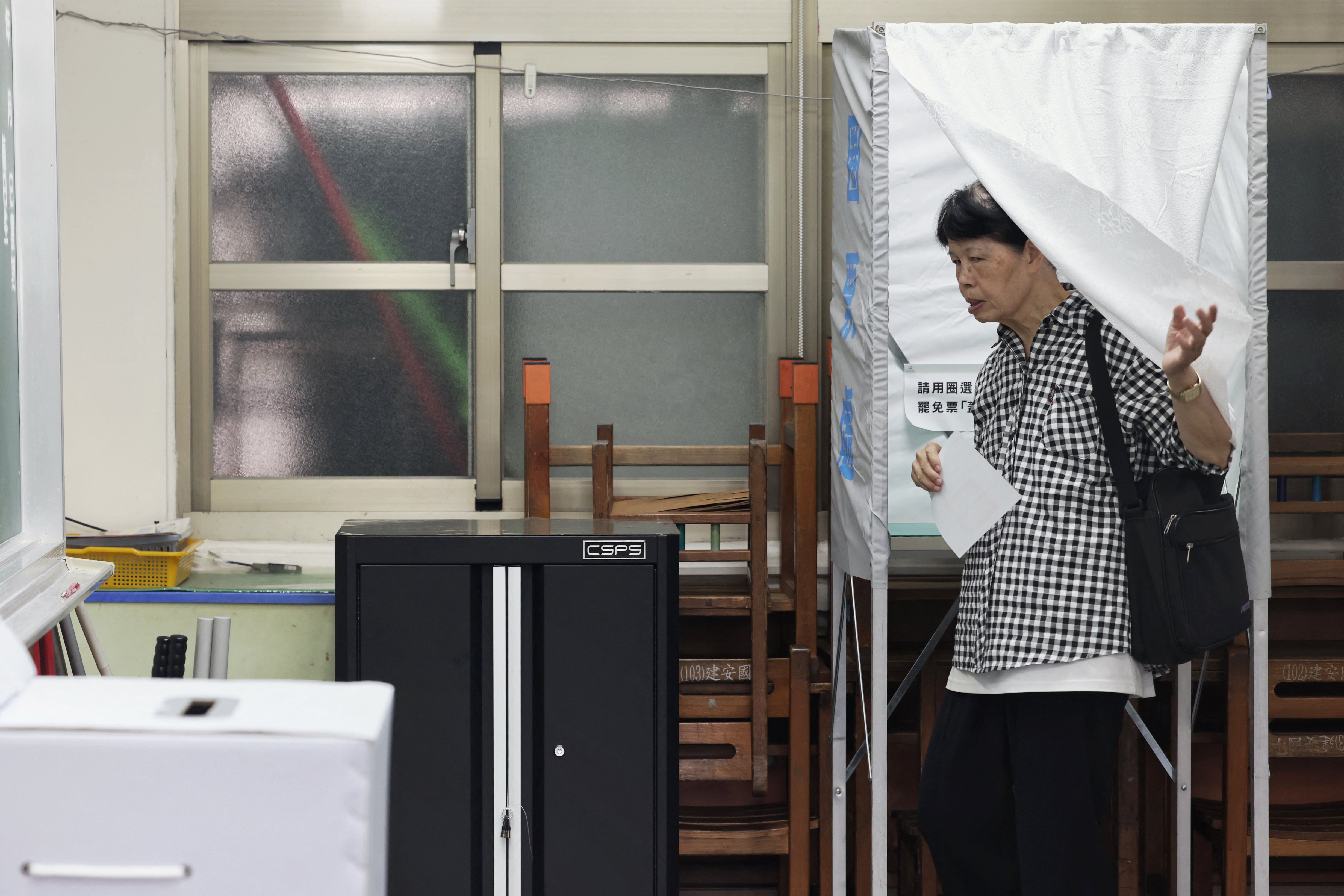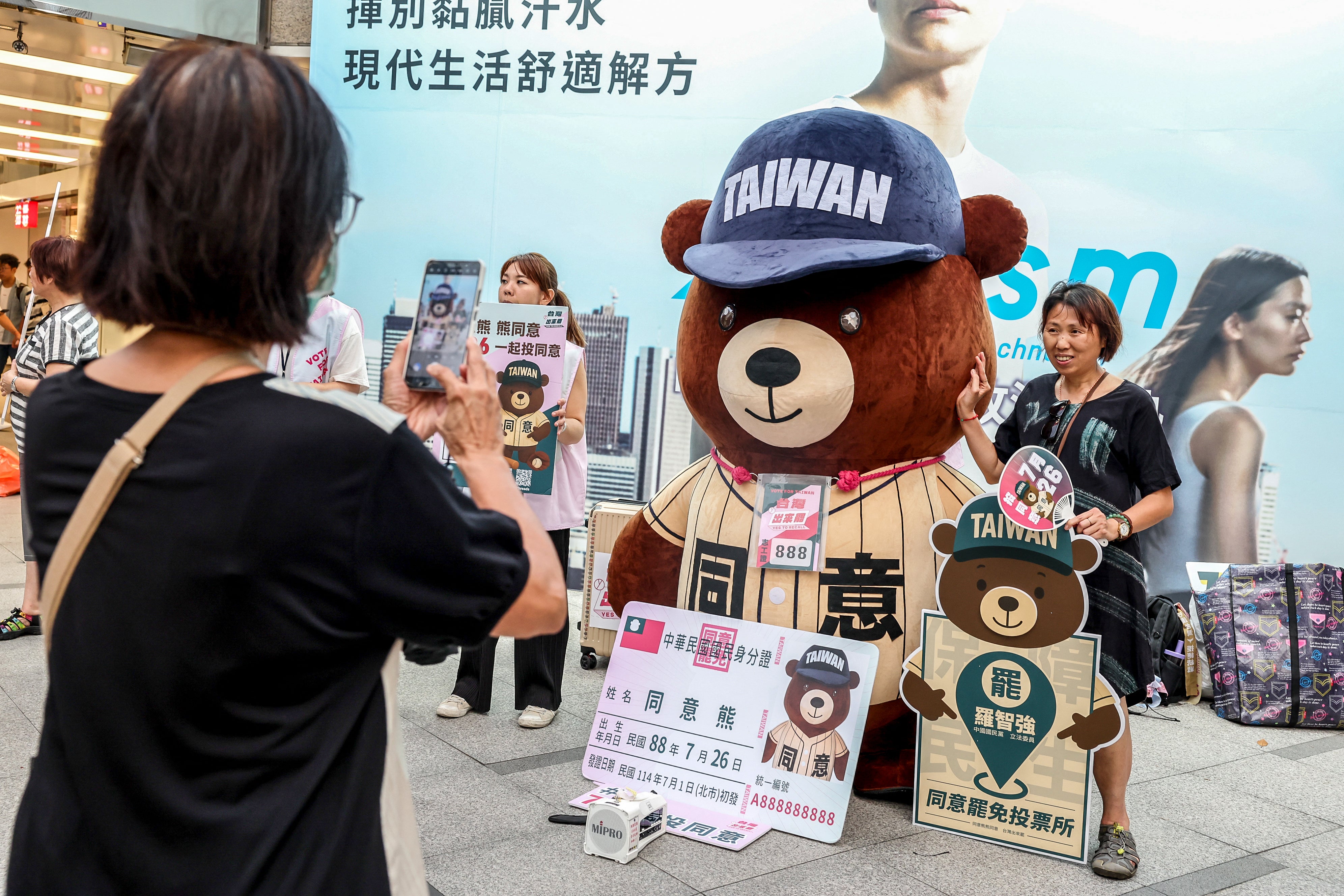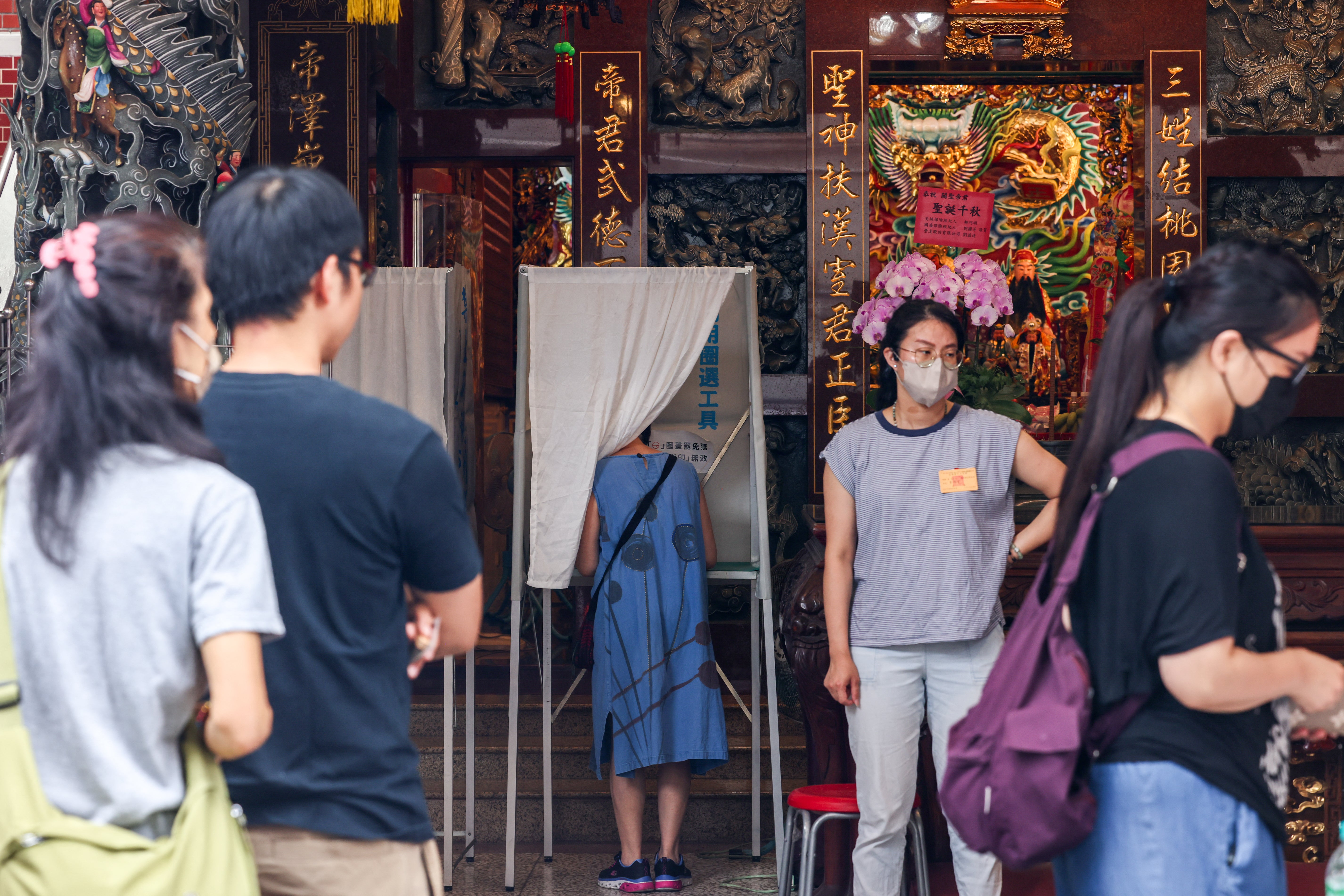The Taiwanese are casting their votes on Saturday in the island’s largest-ever recall election targeting nearly a fifth of its lawmakers, all from the main opposition party.
The poll’s outcome could shift the balance of power and offer president Lai Ching Te’s Democratic Progressive Party a brief window to take control of parliament.
Voters were waiting in line at schools, temples and community centres to cast their ballots early on Saturday in the high-stakes election.
Polling stations opened around 8.00am local time (0000GMT) and are set to close at 4pm, with results expected the same day.
Although Taiwan’s ruling Democratic Progressive Party won the presidential election last year, the China-friendly Nationalists, also known as the KMT, and the smaller Taiwan People's Party garnered enough seats to form a majority bloc in the island’s parliament.
The unprecedented recall vote is being led by civic groups who accuse the opposition Kuomintang of working against Taiwan’s interests by reducing key budgets, especially for defence, and pushing legislation to weaken the government.
They accuse the KMT lawmakers of acting in line with China’s interests, reducing its ability to deter Chinese military threats.
However, the KMT denies having a pro-China stance, maintaining that it’s exercising its constitutional duty to scrutinise government policy and curb waste.
Party officials say the recall campaign is politically motivated and an attempt by Mr Lai’s party to impose “dictatorship” and undermine the will of voters who delivered the opposition and its allies a legislative majority in last year’s election.

The KMT holds 52 seats, while the ruling DPP holds 51 seats in Taiwan’s 113-member parliament.
The KMT and the smaller Taiwan People’s Party, along with independent allies, now control 62 seats, compared to the ruling party’s 51.
For the DPP to secure a majority, it would need to oust at least six KMT lawmakers and win all by-elections, which would be held within three months following the announcement of results.
This shift enabled the opposition to stall the government’s legislative agenda and block proposed spending increases, particularly in areas like defence.
A total of 24 opposition lawmakers now face recall votes on Saturday, with seven more votes scheduled for 23 August.

For the unprecedented recall to pass, over a quarter of eligible voters in the electoral district must vote in favour of the move, with the total number of supporters exceeding those against.
The KMT can nominate new candidates or field the same ones, many of whom represent strongholds with safe margins.
Ruling party leaders have been actively campaigning for the recall campaign. Mr Lai urged party members last month to back the campaign, although he did not personally join the trail.
Critics of the KMT argue the recalls are necessary to counter what they see as the party’s alignment with Beijing’s agenda.
Chinese state media and officials have publicly condemned the recall campaign, echoing KMT arguments and accusing Mr Lai of authoritarianism.
Zhu Fenglian, spokesperson for China’s Taiwan Affairs Office, described the recalls as part of Mr Lai’s alleged campaign to “suppress the opposition” and govern through “dictatorship under the guise of democracy”.

Taiwan’s Mainland Affairs Council dismissed Mr Fenglian’s remarks, claiming the Chinese Communist Party’s attempt to influence Taiwan’s democratic process was “evident and clear”.
"Recall in Taiwan is a civil right guaranteed by the constitution, and it is up to the people of Taiwan to decide who should or should not be removed from office,” it said in a statement, citing findings from local research body IORG documenting over 400 instances of Chinese state media content criticising the recall as “green terror” or authoritarian.
Robert Tsao, a billionaire backing the recall effort, said China’s interference only confirmed the KMT’s ties to Beijing. “It shows they are together with the Communist Party. It helps us,” he said at a recent rally.
KMT officials distanced themselves from the support voiced by China, insisting the party neither solicited nor welcomed Beijing’s backing.
“We feel the same way as all the people of Taiwan - this is our business,” said party spokesperson Crystal Yang. “It is the two parties, the DPP and the KMT, fighting for public support... It has nothing to do with the mainland.”
Tony Lin, who chairs the KMT’s Culture and Communication Committee, defended the party’s engagement with China, stating it was necessary for keeping diplomatic channels open in the absence of dialogue between Beijing and Mr Lai’s administration. “We are pro-communication,” he said. “Not pro-Beijing.”
The recalls come at a time of heightened cross-strait tensions, with China ramping up military exercises and diplomatic pressure on Taiwan.
Despite repeated offers for talks, Mr Lai’s government has been spurned by Beijing, which labels him a separatist.







